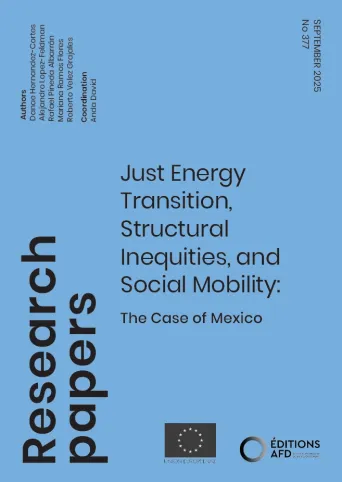Share the page
Just Energy Transition, Structural Inequities, and Social Mobility: The Case of Mexico
Published on

Mexico’s energy transition unfolds in a context of deep structural inequalities and persistently low social mobility. While most households have electricity, large disparities remain in affordability, reliability, and the capacity of energy access to expand capabilities and opportunities. This paper develops a framework linking energy justice to social mobility, combining empirical evidence on energy poverty with the social and solidarity economy (SSE) perspective. Using household survey data, we document inequities in access to energy services and show how low-income households face disproportionate burdens that constrain educational and occupational mobility. We then explore how SSE-based models, particularly energy cooperatives, can improve affordability, reliability, and community participation in energy governance. A case study of a fishing cooperative in Yucatán illustrates how renewable energy projects may both alleviate deprivation and foster upward mobility. We argue that embedding distributive and procedural justice into Mexico’s energy transition is essential for inclusive and sustainable development.
Useful Information
-
Authors
-
Danae Hernandez-Cortes, Alejandro Lopez-Feldman, Rafael Pineda Albarrán, Mariana Ramos Flores, Roberto Velez Grajales
-
Coordinators
-
Edition
-
377
-
Number of pages
-
44
-
ISSN
-
2492 - 2846
-
Collection
-
Research Papers
-
Languages
-
English
